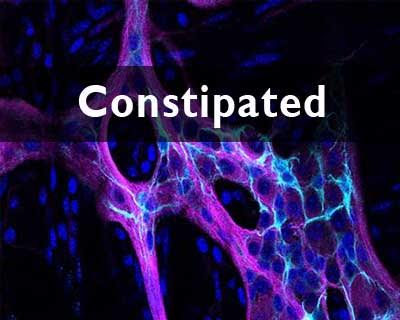- Home
- Editorial
- News
- Practice Guidelines
- Anesthesiology Guidelines
- Cancer Guidelines
- Cardiac Sciences Guidelines
- Critical Care Guidelines
- Dentistry Guidelines
- Dermatology Guidelines
- Diabetes and Endo Guidelines
- Diagnostics Guidelines
- ENT Guidelines
- Featured Practice Guidelines
- Gastroenterology Guidelines
- Geriatrics Guidelines
- Medicine Guidelines
- Nephrology Guidelines
- Neurosciences Guidelines
- Obs and Gynae Guidelines
- Ophthalmology Guidelines
- Orthopaedics Guidelines
- Paediatrics Guidelines
- Psychiatry Guidelines
- Pulmonology Guidelines
- Radiology Guidelines
- Surgery Guidelines
- Urology Guidelines
Link between Constipation and Herpes Infection: Yale Study

A Yale-led study has shown a surprising link between constipation and herpes infection. The finding, published in Cell Host & Microbe, advances the science on herpes, and could help patients with chronic gastrointestinal diseases with no clear cause.
Individuals with herpes have reported seemingly unrelated symptoms such as constipation and urinary retention (inability to empty the bladder), but the mechanism was not understood. The research team, led by Akiko Iwasaki, professor of immunobiology and Howard Hughes Medical Institute investigator, decided to investigate using mice models of herpes simplex virus-1, the dominant cause of genital herpes in the United States.
They found that the herpes virus spread from the genitals to nerves in the spinal chord, and then on to neurons in the colon, killing them. The damage to the colonic neurons prevented the movement of food along the digestive tract, leading to an enlarged colon and disease.
While the effects in mice are distinct from what happens in people with herpes, the study reveals a previously unrecognized disease process. “The key findings is that there is this unexpected infection in the neurons in the colon wall after herpes infection,” said Iwasaki. “Other members of the herpes virus family, including Epstein-Barr virus, chicken pox virus, and cytomegalovirus have been found in the neurons of the colon of people with unexplained chronic constipation. When doctors can’t figure out the cause of these chronic intestinal conditions, one thing to look at is a viral infection.”
Other study authors include William Khoury-Hanold, Brian Yordy, Philip Kong, Yong Kong, William Ge, Klara Szigeti-Buck, Alexandra Ralevski, and Tamas L. Horvath. This research was supported by the Howard Hughes Medical Institute and the National Institutes of Health.
You can read the full article by clicking on the following link:
William Khoury-Hanold, Brian Yordy, Philip Kong, Yong Kong, William Ge, Klara Szigeti-Buck, Alexandra Ralevski, Tamas L. Horvath, Akiko Iwasaki.Viral Spread to Enteric Neurons Links Genital HSV-1 Infection to Toxic Megacolon and Lethality. Cell Host & Microbe, 2016; 19 (6): 788 DOI: 10.1016/j.chom.2016.05.008

Disclaimer: This site is primarily intended for healthcare professionals. Any content/information on this website does not replace the advice of medical and/or health professionals and should not be construed as medical/diagnostic advice/endorsement or prescription. Use of this site is subject to our terms of use, privacy policy, advertisement policy. © 2020 Minerva Medical Treatment Pvt Ltd